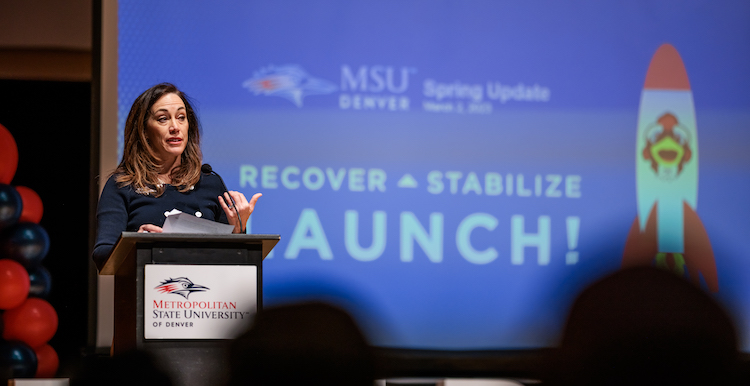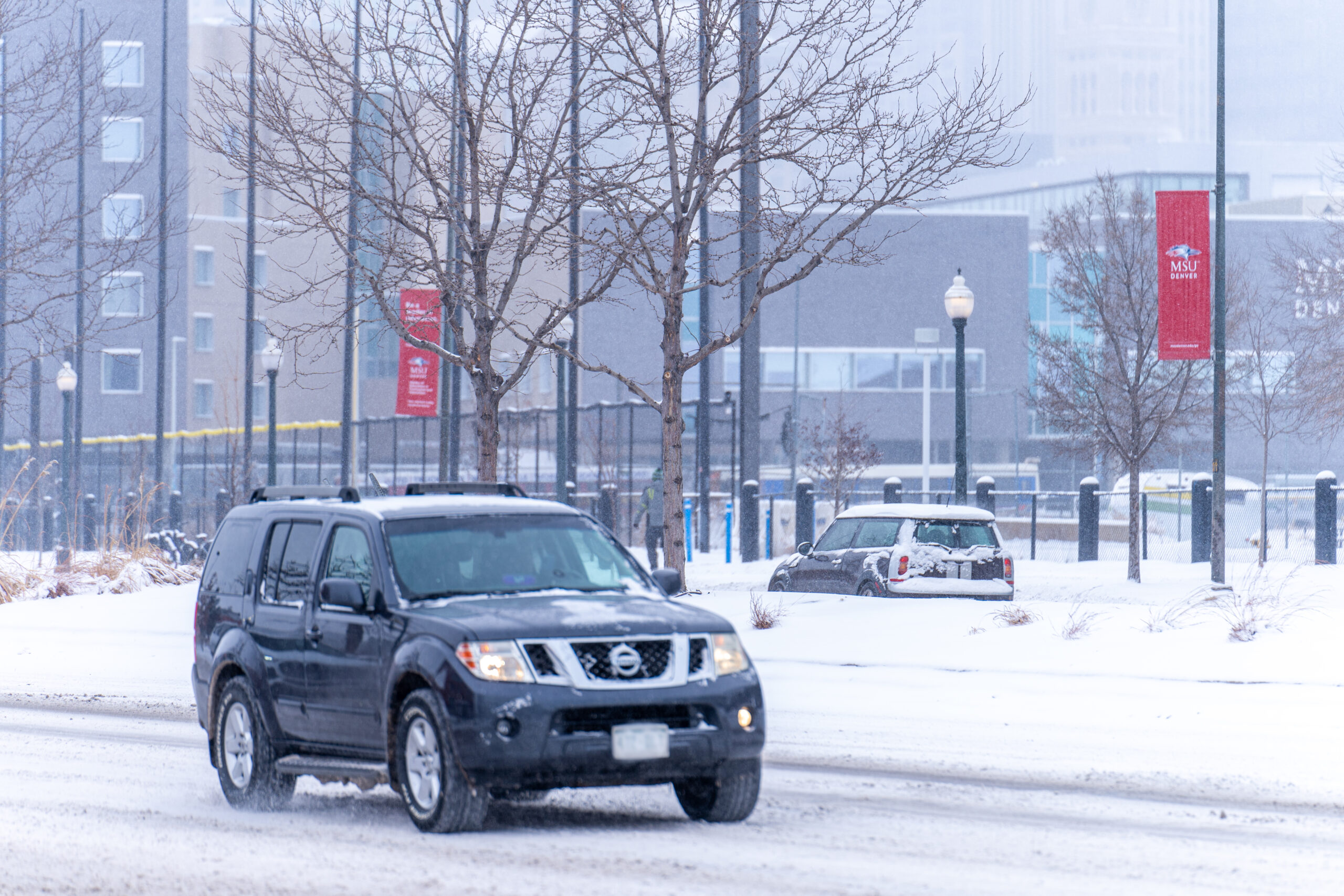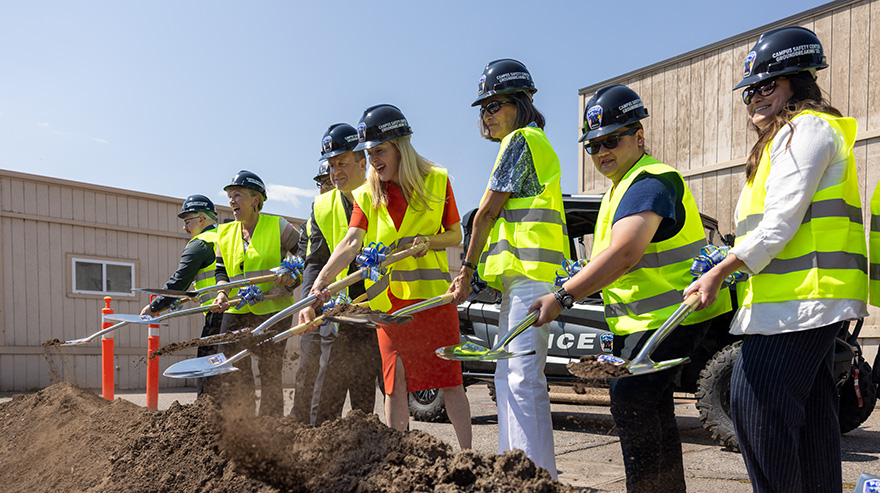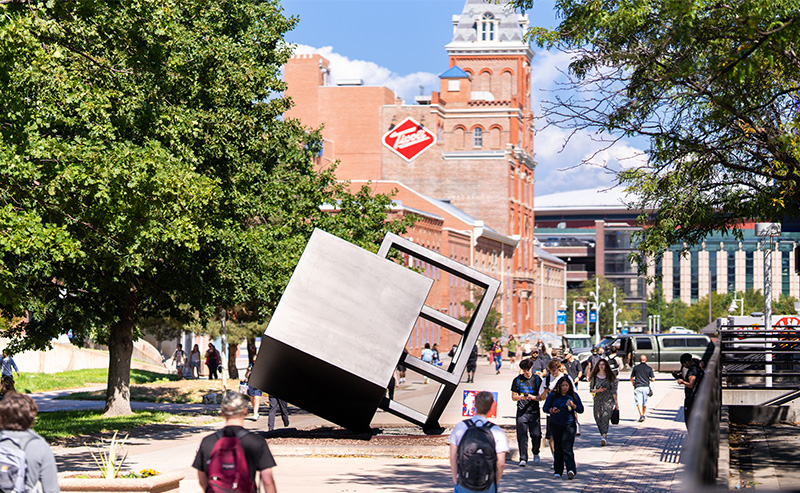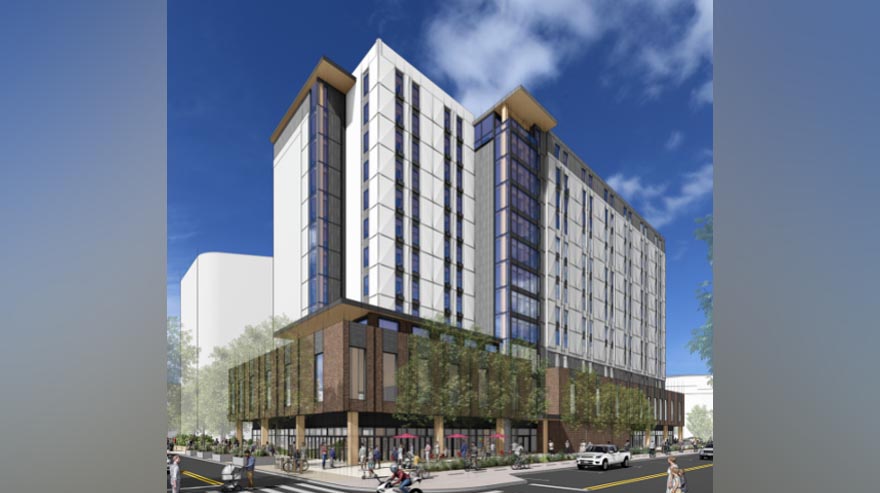The 2023 Spring Update on March 2 included information on Metropolitan State University of Denver’s priorities, budget processes, enrollment efforts, capital projects, infrastructure investments, success stories and ongoing faculty-workload conversations.
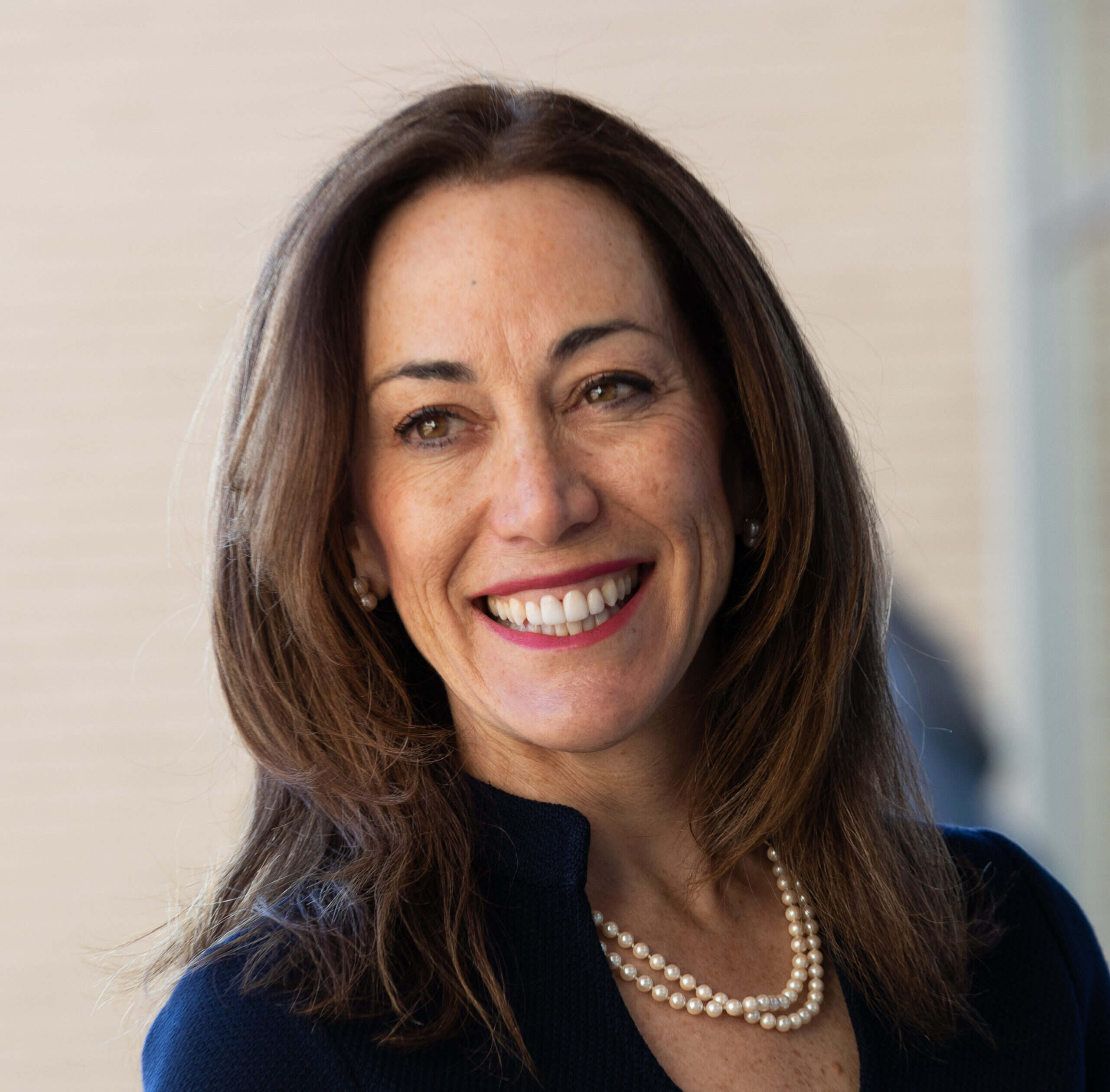
“I want this campus to be a source of joy, a place where each and every one of you knows your purpose within the University and the vital role you play in carrying out our mission of providing an accessible, enriching education to our students,” President Janine Davidson, Ph.D., said as she welcomed several hundred attendees who gathered in the King Center or tuned in online.
To meet this goal, the University is focusing on people, processes, student servingness, infrastructure, resources, innovation and technology, with Thursday’s event focusing on resources and people.
Funding and budget processes
Providing a financial snapshot, Davidson explained that tuition and fees make up the bulk of MSU Denver’s revenue and account for 62% of the University budget. State funding covers just 29%, with the remainder coming from smaller auxiliary sources.
“The steady year-over-year disinvestment by the state in higher education means our students must make up the difference,” Davidson said, applauding the University Advancement team for its success in building donor relationships and exceeding capital-campaign benchmarks.
As for expenditures, she explained that the University spends 65% of its resources on employee compensation, while 22% goes to operations and the remainder to several smaller areas. She also provided an overview of the University’s transformed and decentralized budget process, which focuses more on long-term financial planning, improved data for decision-making and the recent establishment of the University Planning and Budget Advisory Committee.
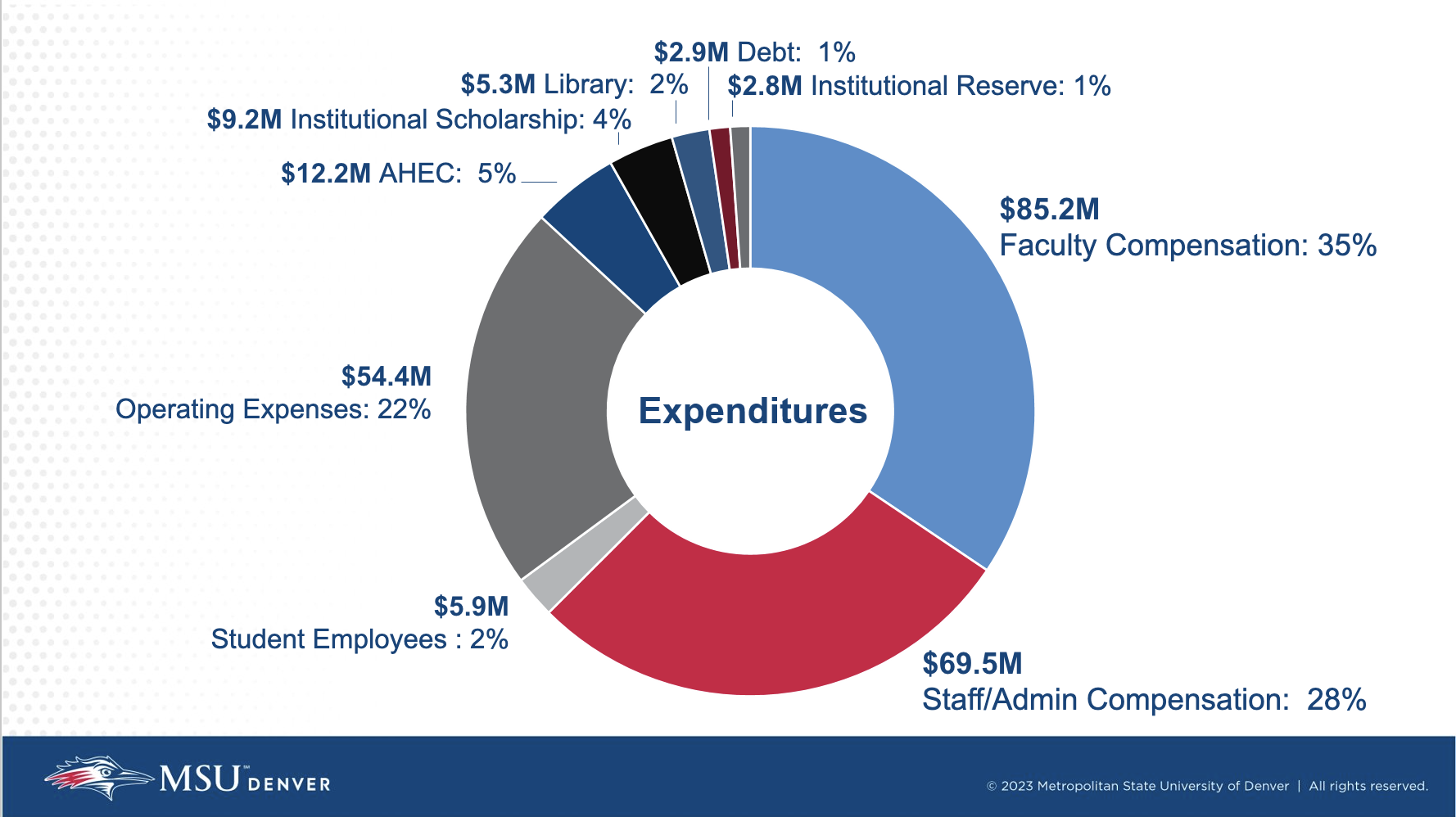
The UPBAC includes representatives from each branch of the University as well as student government, the faculty and staff senates and department-chair representatives. Part of members’ charge is to keep their constituencies informed regarding the University’s budget planning and any issues that affect the budget. More information is available through the Office of the Budget.
Faculty-workload fireside chat
Davidson began by providing context and background on the faculty-workload discussion, recognizing previous areas of opportunity and taking responsibility for making changes. She shared that the University has opportunities to improve processes, particularly the integration and awareness of academic and budget processes. Davidson then refocused the challenge.
“No one on this campus should have an unsustainable workload, and we should remain mission- and student-focused in all our efforts,” she said. “There is not one singular perspective … on what the issue is (or possible solutions).
“There’s a lot of hard work that’s already been done, and we plan to leverage all of that to illuminate the issue. We are embarking a task force, and the first step is to get all of us on one side and the issue on the other.”
Davidson then welcomed Marie Mora, Ph.D., interim provost; Liz Goodnick, Ph.D., president of the Faculty Senate; Kristin Hultquist, vice chair of the Board of Trustees; and Meredith Jeffers, Ph.D., faculty trustee. The group responded to submitted questions regarding the cross-functional task force, next steps, timeline, trustee perspectives and more.
See the full conversation by watching the event recording.
Davidson concluded by recognizing the angst and expressing confidence that the way forward will result in sustainable solutions and a net positive impact on the University.
Recognizing Roadrunners
Davidson also applauded faculty members for great work in their respective areas, all employees who are supporting the Workday transition, and several retiring Roadrunners:
- Carlos Frésquez, professor of Art
- David Lynn Hoffman, Ph.D., professor of Management
- Rob Ingle, senior program manager in Learning and Development
- Karen Lollar, Ph.D., professor of Speech Communication
Additional priorities
In addition to the process and people-centric topics outlined above, promising enrollment trends were noted:
- Undergraduate enrollment for spring is down less than 2% year over year, which is much better than the previous two years.
- New registered undergrad students were up 19% for spring.
- MSU Denver welcomed more than 3,000 attendees to the recent Open House.
- Fall acceptance rate is up 35%.
To continue driving brand awareness and attracting new students, refreshed marketing efforts were unveiled under the new moniker “Changemakers Wanted.”
With more and more new Roadrunners, a continued focus on retention was emphasized, including the University’s continued investment in Stuff That Works. These programs, including initiatives such as Pathways to Possible, Earn and Learn and Dean’s Grants, have proved to increase retention.
Follow the Early Bird or watch the event recording for more information.




